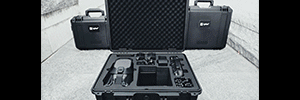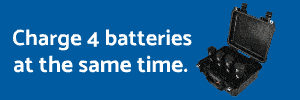I wasn’t suggesting that attaining a lucrative career as a UAS pilot was “simple”. In fact, I asked where one could acquire the specific knowledge, training, etc necessary while referencing the potentially high cost of associated training and equipment. A lucrative career in
anything requires significant effort and financial investment. Professional success is never simple in any field, including UAS pilot.
Sure, there may be a flood of cheap, easy to fly drones, but I imagine cheap, easy to fly drones aren’t the type of equipment that a professional drone pilot with a lucrative career typically employs. There’s a flood of cheap, easy to use hammers out there too, but a professional with a lucrative career in construction likely put a lot more time, effort, and financial investment into their trade beyond purchasing a hammer at Home Depot.
It’s occurring to me that a Mavic forum may be the wrong place to ask my original question. While the
Mavic Pro 2, M2EA, and others certainly have professional applications, they also have limitations making them unsuitable for others. A professional UAS pilot with a lucrative career may own a Mavic, but would likely have made a significant financial investment into some combination of a
Phantom 4 Pro, Matrice 300 RTK, Yuneec H520E, etc. They also likely would’ve invested a significant amount of time and money into the training necessary to make use of that high end equipment. They’re not competing with countless Mavic Mini owners for real estate jobs. As others have mentioned, they’re focusing on mapping, modeling, industrial/government inspections, surveying, etc and competing with far fewer pilots who possess the necessary equipment, training, and skills required to provide those services.
I’ve seen a lot of pessimistic posts similar to yours that come across as very discouraging, and a bit misleading in my opinion. I agree that simply purchasing a cheap drone won’t lead to a lucrative career as a UAS pilot. I can’t imagine anyone would think it’s that simple. That said, I do think that as in any line of work, if one is willing to invest the time, effort, and money into their trade a lucrative career as a UAS pilot is a realistic possibility. I was hoping for some specific real world experiences/advice from thise who have done so, but again, this probably isn’t the right forum to expect such replies.










